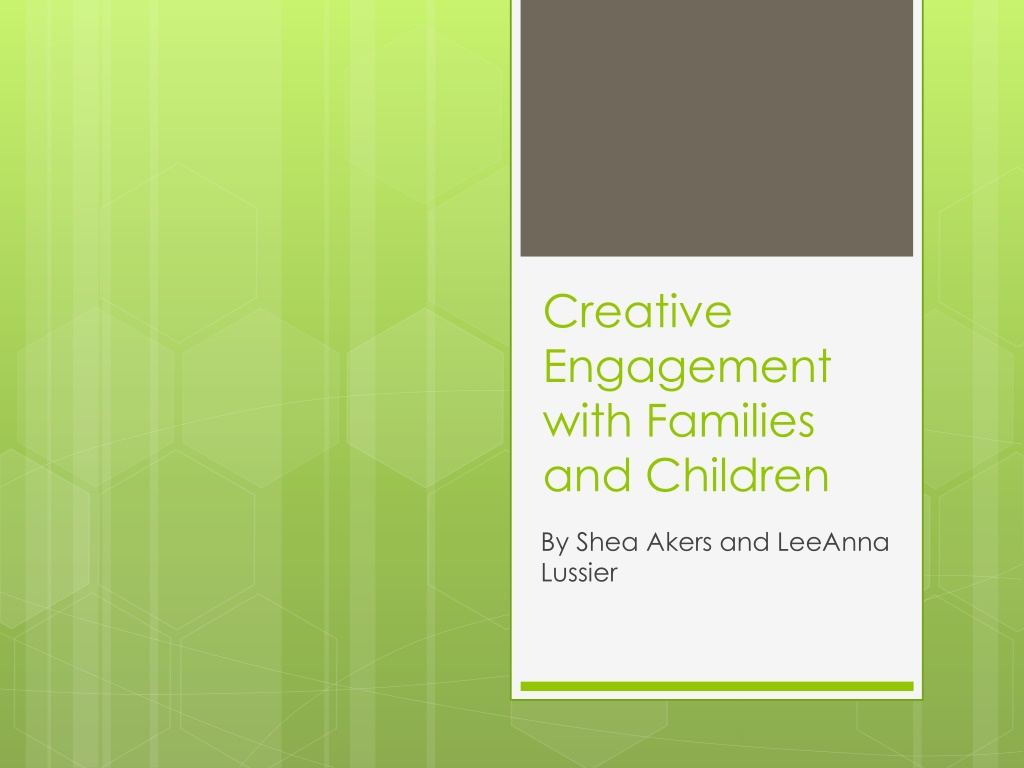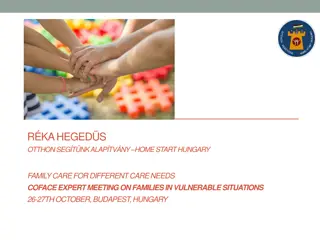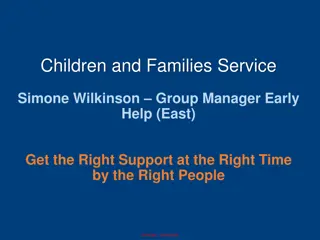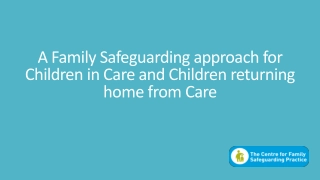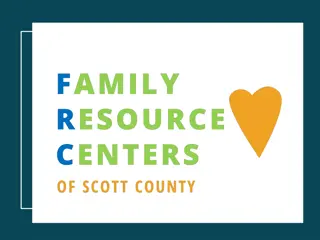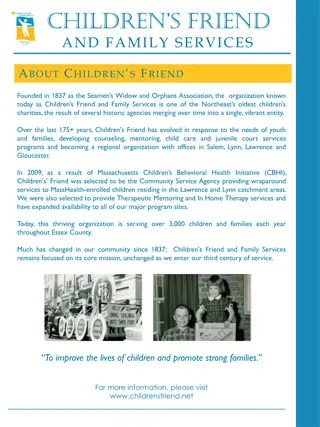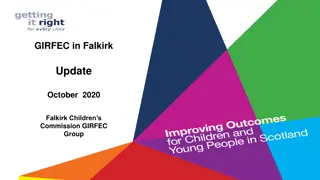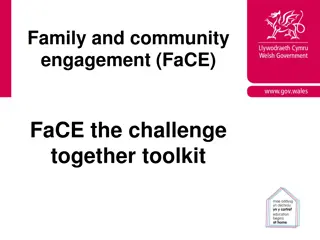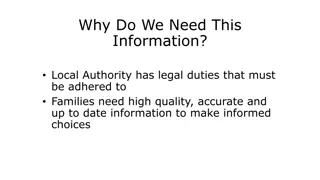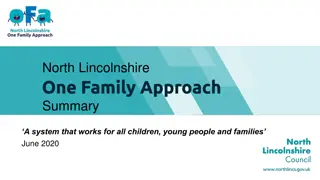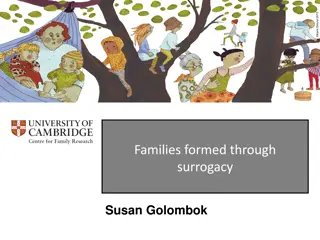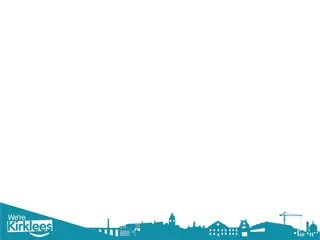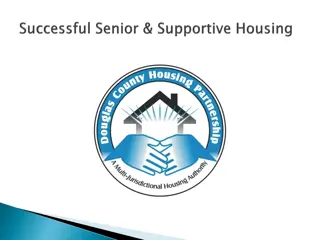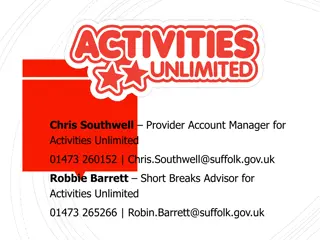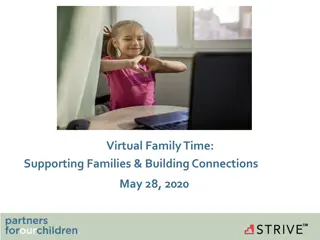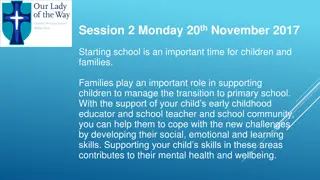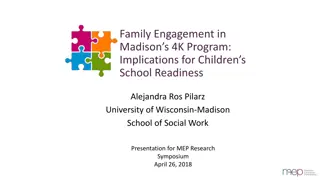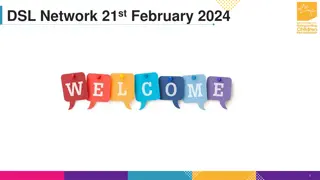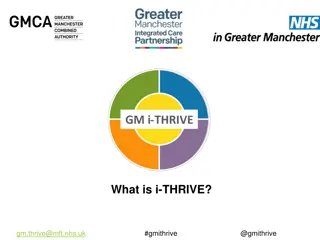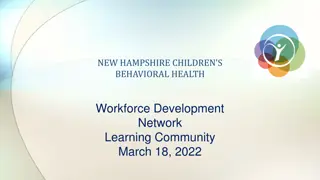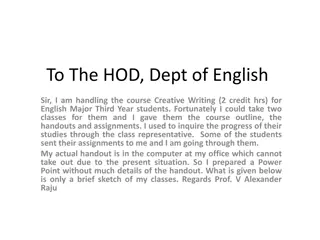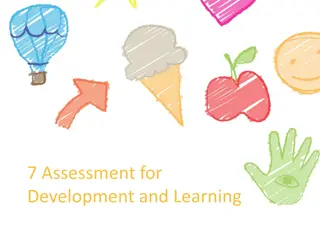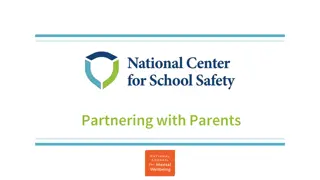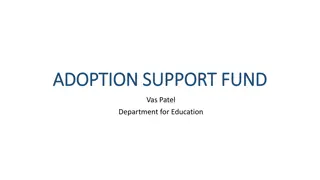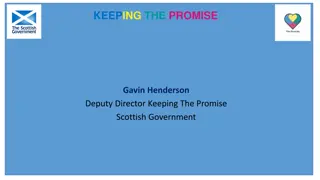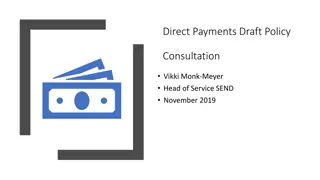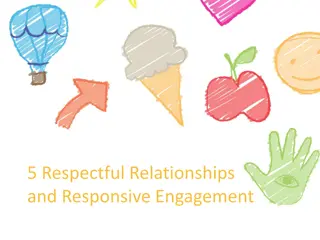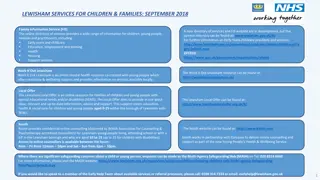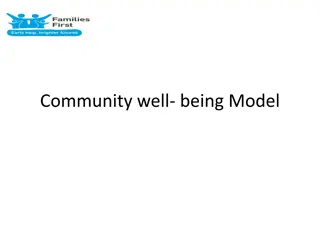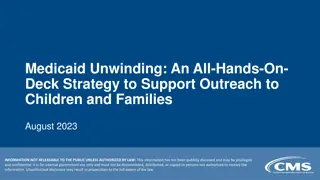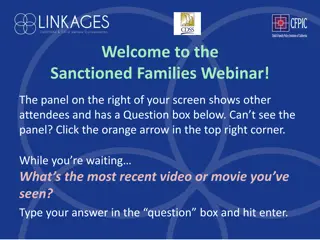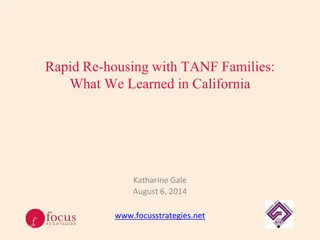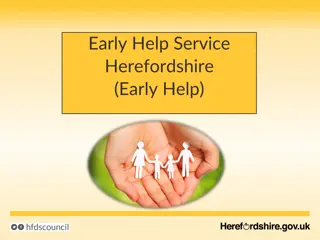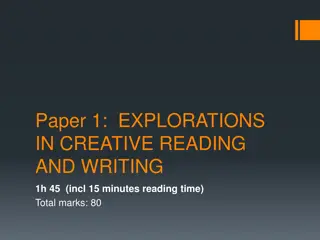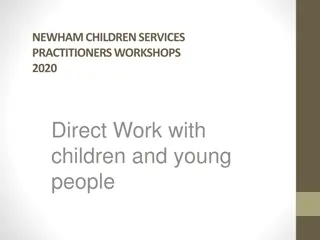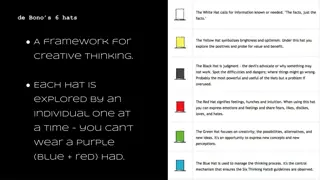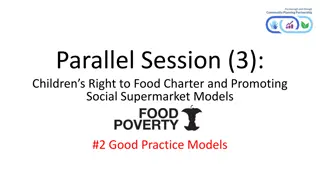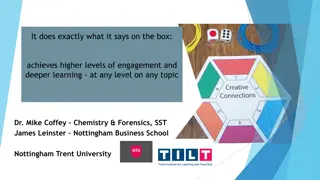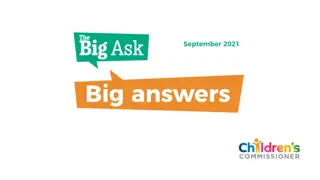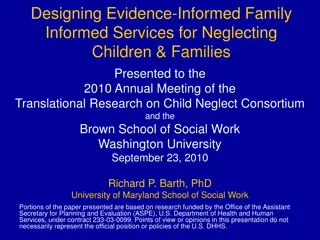Creative Engagement with Families and Children: A Comprehensive Approach
Skill building in family-based intervention is essential for tailored support to individuals and families. This process involves a team effort with counselors, recreational therapists, and skill builders working together. Elements of skill building include training, follow-up, and documentation preparation for on-campus and community engagement. Training focuses on ongoing education, cultural awareness, and professional conduct. Preparation involves understanding family dynamics, safety plans, and rapport building. In-home skill building covers multiple phases, from initial assessment to reintegration activities, to improve family skills and promote a smooth return home.
Download Presentation

Please find below an Image/Link to download the presentation.
The content on the website is provided AS IS for your information and personal use only. It may not be sold, licensed, or shared on other websites without obtaining consent from the author. Download presentation by click this link. If you encounter any issues during the download, it is possible that the publisher has removed the file from their server.
E N D
Presentation Transcript
Creative Engagement with Families and Children By Shea Akers and LeeAnna Lussier
The 3 Ws What, Who, Why Skill building is Family based intervention tailored to an individual and family s needs. The Team: Everyone has a part! CCTA s, counselors, recreational therapist, skill builders, managers, director Why skill build with the family and individual?
Elements of Skill Building Training Follow Up/ Documentation Preparation Skill Building In On Home Campus Community
Training Follow Up/ Documentation Preparation Skill Building In On Home Campus Community Training
Training On going education Cultural differences and regional access Appropriate professional behavior and dress Periodic updates and retraining
Cultural Differences Activity Privilege Checklist
Training Follow Up/ Documentation Preparation Skill Building In On Home Campus Community Preparation
Preparation Knowledge of family and history Review of Safety Plan/ICMP Initial contact about visit and family needs Research diagnosis, skill deficit activities, introductory, assessment and exploration activities Consult with Team about potential skills and challenges Build rapport with the child and family
Training Follow Up/ Documentation Preparation Skill Building In On Home Campus Community In Home Skill Building
In Home Skill Building Family dynamics, temperament and family based individualized care. Build rapport with family Skill building in multiple phases Initial assessment and observation to help identify family needs Treatment based activities to improve skills Reintegration Skills to prepare for return to home
Anatomy of a Skill Build Introduce the activity: give a brief overview Run the activity Process the activity In home between 2 and 4 hours May do multiple activities Vary the tone of the activities Discuss with parent at beginning and end of visit
Training Follow Up/ Documentation Preparation Skill Building In On Home Campus Community Community Skill Building
Community Skill Building Community excursions with staff. Utilize before and after Community Skill Checklist. Family outings to home town activities with staff support- local YMCA, parades Daily living skills handling money, parking lot safety, etc.
Training Follow Up/ Documentation Preparation Skill Building In On Home Campus Community On Campus Skill Building
On Campus Skill Building Proactive activities based on family s needs and child s ICMP. (ie. skill deficits, family dynamic) Therapeutic activities (ie. Art Therapy, Therapeutic Drumming) Staff communicating with counselors to discuss goals and progress Revisit in-home skill building sessions
Training Follow Up/ Documentation Preparation Skill Building In On Home Campus Community Follow Up & Documentation
Follow Up Document In Home sent to The Team that day or next work day. On Campus and Community Skill building -in Group Logs, individual Daily logs, weeklies and Treatment Team documents. Skill builder meets with child on campus within one week for processing their in home skill building Skill building updates discussed at Treatment Team Meetings and Weekly Team meetings.
Treatment and Skill Deficits Initial Reintegration Skills Assessments Skill Building Phases
Initial Assessment Sessions Goals: Identifying needs and skill deficits of the entire Family Observation of child, family dynamic and environment Discussion with family: what needs to happen for the entire family to be successful Basic skill building activities that explore child s and family s point of view Build rapport and gather information, not making recommendations.
Treatment and Skill Deficits Initial Reintegration Skills Assessments Skill Building Phases
Treatment and Skill Deficits Mid-level activities based on previously identified skill deficits and needs for improvement To be completed after first home visit and initial proactive activities Sessions should build upon each other to work towards reintegration Occasionally, review skill deficit check list with child/family to monitor progress
Skill Deficits and Activities Family Relational ie. Mirror Game, Family Posters, Blind Minefield Cognitive Flexibility Routine Games, Shifting Perspective, Compromising Role Plays Executive Skills Timeliness Games Emotion Regulation Situational Calming Choices, Decision Making Games Social Skills Positive thought games, Puppet Role Plays Community Skills Roleplay community situations Free Play as a skill building activity
Activity Resources Favorite Therapeutic Activities for Children, Adolescents, Families http://www.lianalowenstein.com/e- booklet.pdf https://youthlight.com/ Therapistaid.com
Post Activity Processing Connect activity to skill deficits Use leading questions Don t talk too much- encourage them to come up with the answers Emphasize the importance of the activity Identify concrete ways this can improve their life.
Processing Questions How did this make you feel? What did you learn? What was difficult? What area did you do well in? Can you do this again? How is this helpful? How can you use this in real life? Why did we do this activity?
Concrete vs Processing-Based Concrete Skill Builds teach something before you ve discussed it. Emotion Board Games, Anger Balloons, Impulse Balloon Game Processing-Based Skill Builds do most teaching after the activity is complete, during processing. Sand Play, Blind Minefield, Compromise RP Do not teach much if participants can t reflect on the activity and process well.
Engaging reluctant families and children Skill Building Challenges
Creative engagement Patience and compassion with families as they navigate difficult situations Reassuring and communicating with reluctant families Use TCI skills: Emotion 1stAid, Reflective Responses, Summarization Highlight changes for the positive Work to shift the parent/guardian s perspective Build a relationship with everyone, especially siblings
Creative Engagement contd Tailoring activities & structure to dynamic (ie. Sports for ADHD) Ration critical comments and changes Highlight family strengths consistently Creative motivators ie. Involving family in planning activities, Special Events, Special activities Schedule your next appointment before you leave
Skill Build Kits Treatment and Skill Deficits
Skill Build Kit Suggested Items Sensory items Theraputty Kinetic sand Stress balls Texture balls CD player/ meditation CDs Physical Items Soccer ball Football Hoolahoops Cones/line markers/lawn chalk Frisbee Therapeutic activity items Yoga mat Sand box toys Therapy board games Card games Puppets Arts and Crafts Colored paper Scissors Glue sticks and glue Stickers Markers/crayons/colored pencils 1. 4. a) b) a) b) c) c) d) d) e) 2. 3. 5. a) a) b) c) b) c) d) d) e) e)
Treatment and Skill Deficits Initial Reintegration Skills Assessments Skill Building Phases
Reintegration Skills Final skill builds in the home, utilizing advice from Transition Coordinator and The Team Essential for helping to set the child up for success at home Make it fun, happy- celebrate their progress!
Reintegration Wrap up activities and final questions Review and discussion of all skills that were worked on in a creative way- make a poster, scrap book, etc Review goals achieved, highlighting strengths and progress. Do first day, last day activity to discuss how the child and family felt on their first skill build and their final skill build.
